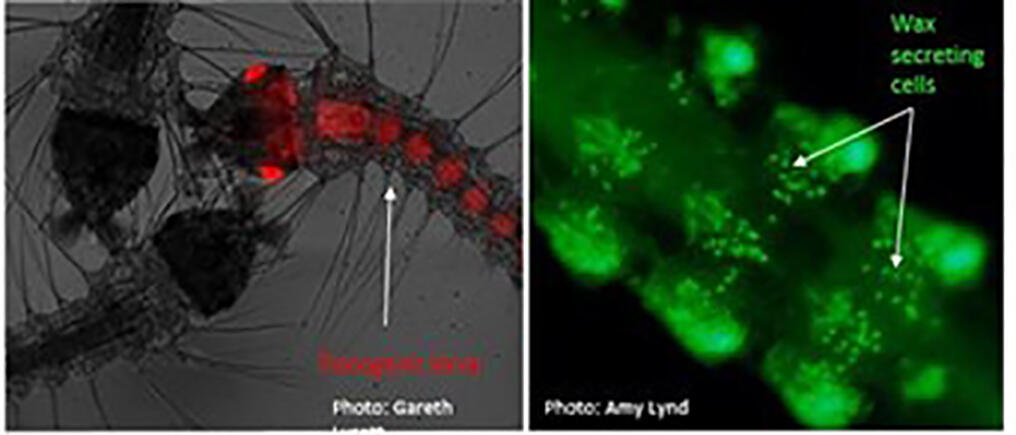
Leading international engineering enterprise, Laing O’Rourke, have pledged £1,000 for the purchase of an imaging system to help LSTM carry out their life-saving work researching the vector borne disease malaria.
During a recent visit to LSTM, members of Laing O’Rourke were impressed by the skill and dedication of the LSTM staff and have offered help to fund an imaging system to enable Dr Gareth Lycett’s group to display live fluorescent microscopy. It will enable more effective presentations from the fluorescent microscope to visitors and students and will aid research by simplifying staff training.
The work of the Lycett group uses the latest genome modifying techniques to examine the precise in vivo role of mosquito genes that affect malaria transmission. They currently study genes that cause insecticide resistance and dehydration tolerance that shape the population structure of mosquitoes in sub-saharan Africa. Such evolutionary force allows the spread of resistant disease vectors into new niches and more temperate zones. Knowledge gained is used to develop diagnostic tools to monitor population dynamics, inform evidence based control programs and develop novel approaches and chemicals to control malaria transmission.
Dr Gareth Lycett said: “We are extremely grateful for this generous donation by the Laing O’Rourke Group which will assist in the purchase of our new equipment. It will simplify how we demonstrate our work and aid us in our further research.”
Laing O’Rourke Health Sector Leader Stuart McArthur said: “Laing O’Rourke has long-standing ties to the health community in Merseyside, whether that’s been through delivery of life changing schemes for the Clatterbridge Cancer Centre and Alder Hey Children’s Hospital, or through fundraising for causes across the region. Our support for the Liverpool School of Tropical Medicine is a continuation of this and we’re delighted to be able to contribute to the vital research being delivered there.”
It is estimated that there were 198 million cases of malaria worldwide in 2013, with around 584,000 deaths from the diseases, 90% of which occurred in Africa. Malaria is caused by the plasmodium parasite, which is transmitted to humans from the bite of an infected mosquito. With an increasing number of countries reporting mosquito resistance to at least one class of insecticide, there has never been a greater need to understand genes involved resistance.